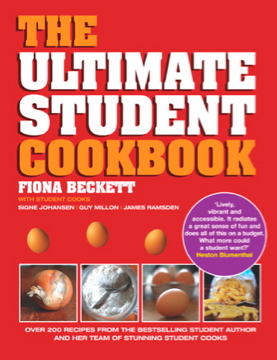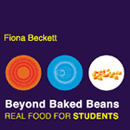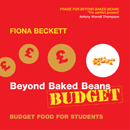publication date: May 6, 2008
|
author/source: Kerry Torrens
It’s that time of year again when the exams are looming and you want to give yourself the very best chance of doing well. We’re increasingly aware that food has an effect on how we feel and think – it can influence our alertness and our ability to concentrate so eating the right sort of meals is one of the keys to exam success.
It’s no surprise then that an organisation in which I’m involved called Food for the Brain has been working with schools to help them improve their exam results. In fact Food for the Brain, which is also involved with mental health organisations and charities, has identified some of the foods and drinks which are the ideal choices for fuelling the brain and supporting you during the stress of exams. You'll find a lot of good ideas on their website
Here are some simple guidelines to help you select the right foods as you approach exam time:
- First of all to optimise those all important grey cells you need to eat little and often. This helps provide a constant supply of fuel for the brain and ensures you remain alert and calm. Aim to have three main meals as well as a mid morning and mid afternoon snack.
- Never skip meals - especially breakfast. A bowl of muesli or porridge, a boiled egg, a smoothie with ground seeds or simply a piece of granary toast with peanut butter make great choices.
When you’re planning your meals and snacks there are four golden rules that Food for the Brain promotes:
- Choose foods which are low in sugar and what nutritionists call low in glycaemic load (low GL). This means they don’t give you that sudden rush of energy which is only too quickly followed by the characteristic slump. Low GL foods include granary bread, brown rice, wholemeal pasta and snacks such as oat cakes.
- Ensure you include foods which are high in essential fats – these are the 'good' fats found in nuts, seeds and oily varieties of fish. Aim to have oily fish such as salmon, tuna, mackerel or sardines twice a week and a handful of nuts, seeds or their oils daily. Also try and minimise the amount of deep fried foods you eat because they contain saturated and trans fats which will compete with the healthy fats in your body.
- Select whole foods as much as possible including fruits, vegetables and wholegrains. These are all high in important vitamins and minerals. Get your recommended five a day by having a glass of juice with breakfast, a piece of fruit mid morning, a bowl of vegetable soup or baked beans for lunch, some carrot and celery sticks with a dip as an afternoon snack and a large green salad with your evening meal.
- Get label savvy and check exactly what you are buying. Aim to select foods which are free from harmful or unnecessary chemical additives or colourings. This is because certain additives have been associated with changes in mood and behaviour and artificial sweeteners may hinder the stabilisation of blood sugar levels which means your concentration may waver.
And of course last but not least on the big day itself:
- Eat light meals and snacks at regular intervals throughout the day. If your exam is after lunch, don’t go for the pasta or bread-based options like sandwiches or rolls. Instead have a protein-based meal which is less likely to make you sleepy mid afternoon. Ideal choices include a salmon or chicken salad or roast chicken and mixed vegetables.
- Remember that it’s important to remain hydrated but choose plain water or even apple juice and water diluted 50:50 instead of the caffeinated or “energy” type drinks. These sugary, stimulatory drinks do give you an instant energy boost but this will only result in a blood sugar slump later on which may spell doom!
- You may like to see that The Times nutritionist Amanda Ursell makes much the same points as Kerry in her article today (9.4.08)



